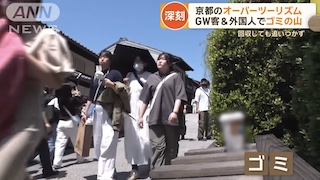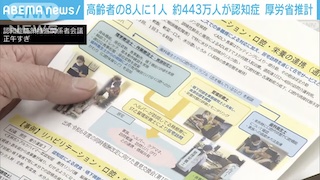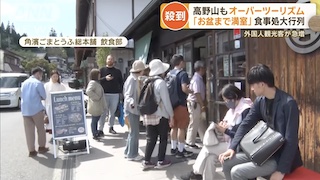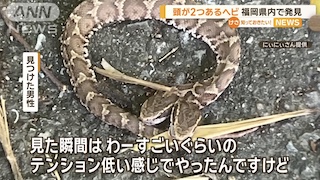TOKYO, Apr 06 (News On Japan) - A surge in prohibited imports at Japan's border has become a pressing concern. At the forefront of this battle is the Narita Airport Animal and Plant Quarantine Counter, where the inspection of meat, vegetables, and fruits is conducted to prevent the entry of infectious diseases and plant pests into Japan.
A recent case involved a woman from South Korea, found on her third violation, bringing prohibited items such as kimchi and other pickles, all neatly packed in vinyl. Despite her claims of ignorance when questioned about the contents—which included raw garlic and pork snacks, both of which are banned—the inspection revealed more banned vegetables, including garlic sprouts and lettuce. The woman, previously caught twice, was swiftly handed a warning and left in haste.
Another incident involved a woman from Sri Lanka, who was caught with prohibited fruits packed in her luggage. Claiming the items were not hers but entrusted by a friend, she was reminded of the personal responsibility that comes with carrying such items. The prohibited fruits, identified as "egg fruit" and dried tamarind from the Malay Peninsula, were confiscated and later incinerated.
Foreign visitors have been bringing in an array of prohibited items, leading to a record high in violations last year. Among the countermeasures are the highly skilled "quarantine detection dogs," whose sit signals a find, playing a crucial role in these frontline defenses.
One peculiar case saw unattended luggage in the middle of a passageway. Upon inspection by a quarantine detection dog, it was linked to a Chinese couple who were in a hurry and unaware of the contents being checked. Their luggage contained tea eggs and a pot full of homemade dumplings intended for their son's family in Japan, illustrating the personal stories often behind these quarantine incidents. Despite the love and care put into these homemade meals, regulations around meat products meant that not all could be allowed through.
Not all stories at Narita Airport involve conflict. Martin, a traveler from Chile, shared his plans to cycle from Fukuoka to Tokyo over six weeks, exploring Japan's shrines, castles, and hot springs. Similarly, Michaela from the USA recounted her journey to Japan for a concert, bringing homemade cookies to share with fellow fans, showcasing the diverse reasons people travel to Japan.
In another event, two men from Sri Lanka were inspected for carrying large quantities of food and spices, including curries, in their luggage. With the ongoing threat of African Swine Fever, such inspections are crucial, even when travelers claim the contents are vegetable-based.
A woman from Fujian, China, faced scrutiny for bringing in a snack believed to contain meat, despite her insistence that it only contained scallions, oil, and sesame. This highlights the challenges faced by both travelers and inspectors in navigating the complex regulations designed to protect Japan's ecosystem and food safety.
Source: ANN










